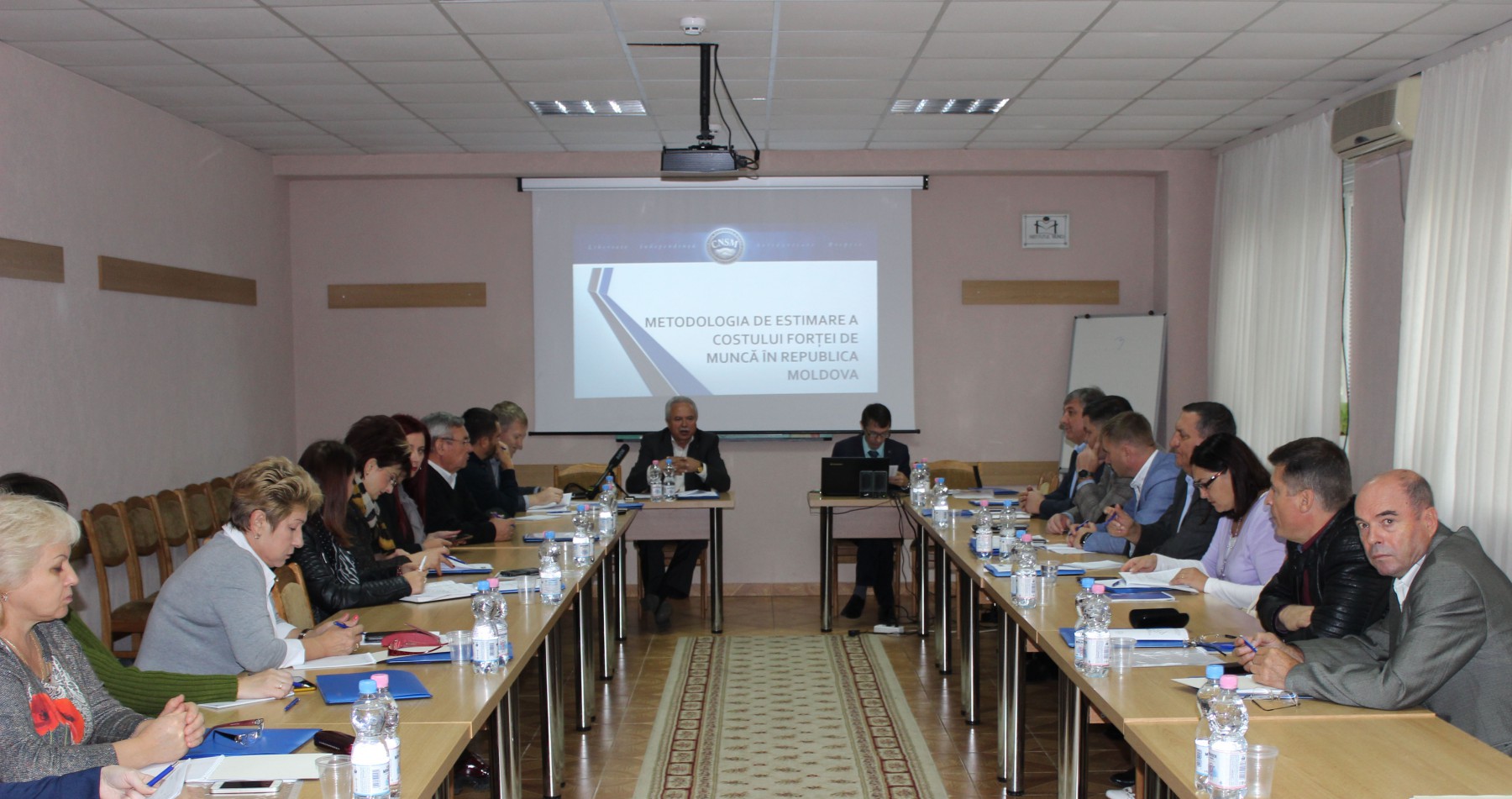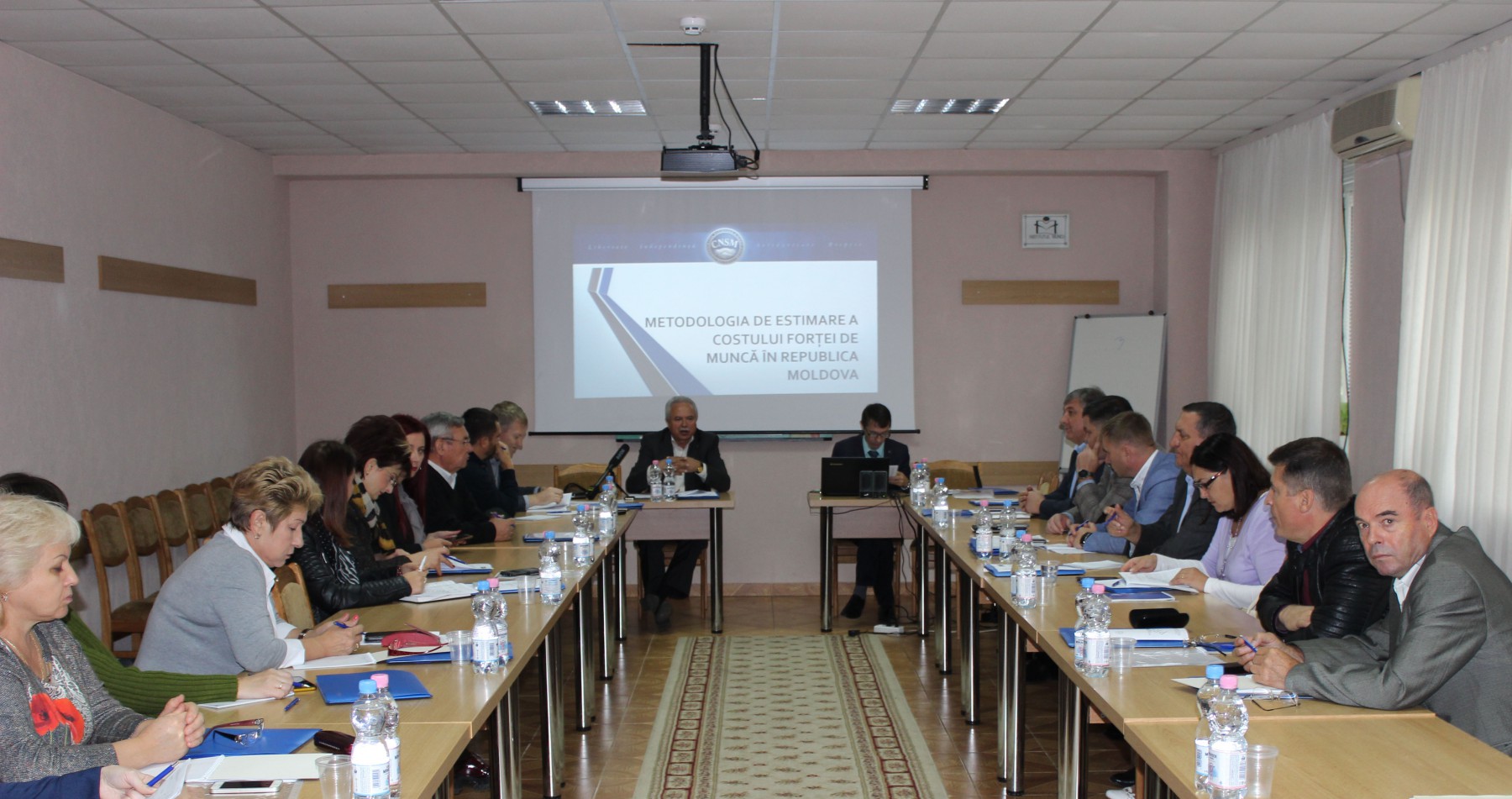18 500 lei – this should be the monthly salary of a Moldovan worker to carry a decent life
To satisfy their rational needs and to ensure a decent living for himself and his family, the employee should be paid for their work with a salary of 18 550 lei per month. To this conclusion reached by the authors of “The methodology for estimating labour costs in Moldova”, developed by trade unions, jointly with specialists of the National Institute of Economic Research.
In developing the methodology were taken into account the cost for food, for clothing and footwear, utilities, health care, social and health insurance contributions, purchase of a house, a car, and other indicators. Thus, to ensure reasonable level of living of the family, made up of four members – two adults employees and two children – are required 37 thousand lei per month, salaries of two employees cover this amount.
Current minimum consumer budget only allows the employee to survive, not to live a decent life
According to official statistics, the average salary in June this year was 5169.7 lei. The average monthly cost of labour per employee, calculated by the National Bureau of Statistics only include labour costs borne by the employer (salary he pays and contributions which are paid in the budgets of state social insurance and insurance in medicine).
While the minimum wage is 1,000 lei, or about 45 Euros (in neighbouring countries it is several times higher: Romania – 276 euro, Bulgaria – 215 euros Ukraine – about 50 euros), minimum existence for people of working age was in 2015 – 1842 lei, exceeding the minimum wage by 1.8 times.
Being below the poverty line and subsistence level minimum wage does not give citizens the opportunity to ensure by their own work with the minimum necessary for life.
“Concerned about the necessity of knowing the real cost of labour, we tried to identify, together with the National Institute of Economic Research that would be the income that a family should receive to have a decent living. The methodology developed by us defines labour cost as the value of necessary livelihood for normal reproduction of the worker and his family members. Thus, it was proposed to measure it depending on the set of consumer goods and services and the level of prices and tariffs for their purchase,” said Sergiu Sainciuc, vice president of the National Trade Union Confederation of Moldova (CNSM).
In developing the methodology, it was considered the hierarchy of human needs, first, the need for food, and then need of clothing, footwear, housing, services, satisfaction of which ensures normal conditions of human vital activity. There were not omitted neither the material and spiritual services that provide moral and physical comfort, neither mandatory taxes and fees, incurred by the individual.
Thus, it was found that to have a decent living, monthly expenses for a family of 4 people would be 37 100 lei. If we divide this amount by two adults, it follows that the monthly salary for a person would be 18,5 thousand.
Methodological approaches used to calculate the labour cost in Moldova
The family of the employee consists of 4 persons (2 adult family members working and two children – a boy and a girl). Adult family members working in their lifetime by 35 years. Normal reproduction cost of two workers and two family members on each item is divided by the number of years of work (35), multiplied by the number of months in a year (12), ie divide by 420. As a result it is determined the amount of costs per month. Monthly costs on all items of expenditure for normal reproduction of two employees and two family members is the amount of labour cost of two employees for one month. By dividing the amount by 2, it is obtained the value of the labour cost of an employee. This sets the size, which should aim for salary, according to the objective requirements of major economic laws – cost law.
“The methodology for estimating labour costs in Moldova” project is be debated to be improved and then it will be used by trade unionists as basic argument for submission requirements for wage hike in negotiations with social partners.
Department of mass media and international relations




